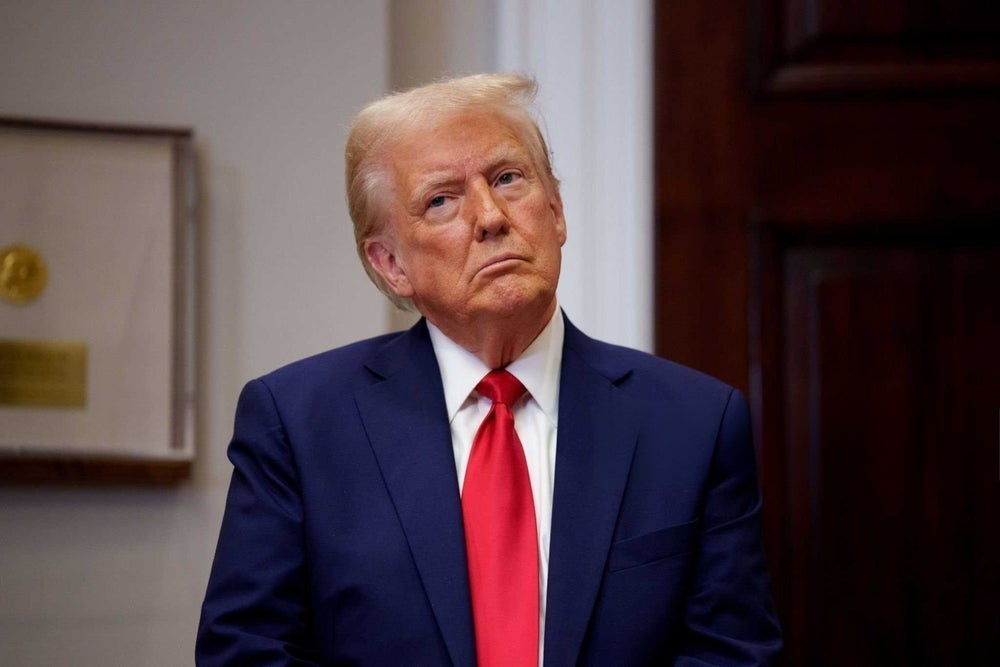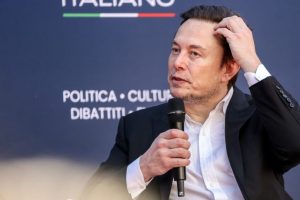
U.S. President Donald Trump doubled down on his aggressive trade tariff strategy on Monday while signaling openness to potential “fair deals” with several countries during a high-profile meeting at the White House with Israeli Prime Minister Benjamin Netanyahu.
Netanyahu announced that Israel is committed to eliminating all trade barriers and tariffs with the United States, pledging to erase Israel’s trade surplus and deepen bilateral commerce.
“We want to eliminate the trade deficits with the U.S.,” Netanyahu said. “We will eliminate any trade barriers. We are going to eliminate the tariffs—and rapidly.”
Trump praised the Israeli leader’s announcement but didn’t offer reciprocal tariff reductions, instead promising, “We’ll take good care of our dear friends.”
Still, the president made it clear that no country would be exempt from the broader reset in America’s global trade posture.
Tariffs Here To Stay And Possibly Permanently
“We have been ripped off by a lot of countries over the years,” Trump said. “We can’t do it anymore.”
Asked whether he would consider a pause in tariffs, Trump firmly replied, “We are not looking into that. We want to sign fair deals with countries.”
He indicated that the tariffs are not just staying—they may become permanent unless foreign governments meet U.S. demands. “Virtually every country wants to negotiate,” Trump said. “They are all offering things to us because they are experiencing a lot of hurt.”
Trump portrayed the current global environment as a unique opportunity to restructure the U.S. economy through aggressive trade actions. “We have an opportunity to reset the table on trade. It’s the only chance we have.”
According to Trump, the United States was the richest and strongest power on earth between 1870 and 1913 – a period he credited to the nation’s reliance on high tariffs and absence of income taxes, which he suggested created the ideal foundation for industrial dominance.
“If there are no fair deals, nations can’t participate in the U.S. economy,” Trump warned. “We’re going to get fair deals with every nation.”
Japan And China Face Sharp Criticism
Several nations were singled out for criticism, with Japan and China receiving particular attention. Trump noted ongoing trade imbalances with Japan, suggesting that while Japanese vehicles dominate the U.S. market, American cars still face significant restrictions entering Japan.
With respect to China, the tone shifted from frustration to confrontation.
Trump accused China of applying tariffs “34% above what their stupid tariff rate is” and warned that a 50% U.S. surcharge would be added on top of existing tariffs if Beijing does not reduce its barriers by April 8.
He called China “essentially a closed country” but added that he hoped to maintain good relations with President Xi Jinping.
The European Union Targeted For ‘Unfair’ Trade Practices
As for the EU, Trump dismissed its zero-for-zero tariff proposal as insufficient. “It’s not enough,” he said.
“The EU was formed to damage the U.S. They took advantage of us.” He cited a $350 billion trade deficit with the bloc and accused it of blocking U.S. goods through monetary and non-monetary tariffs.
“They don’t take our cars, our agricultural products, they don’t take anything,” Trump said.
He further criticized EU regulatory standards, describing them as covert trade barriers. “They come up with rules and standards—non-monetary tariffs—which block us,” Trump argued, while also accusing European officials of manipulating their currency to gain export advantages.
He indicated that energy will be a critical weapon in future trade negotiations. “They need our energy, and they will commit to buy our energy. We have more energy than any other country on earth,” Trump said.
Iran’s Nuclear Program And A Clear Red Line
While the spotlight remained on tariffs, Trump also briefly addressed national security, particularly Iran. Asked whether the U.S. would consider military action to stop Iran’s nuclear program, Trump replied with a warning that hinted at the use of force.
“If the talks aren’t successful with Iran, I think Iran is going to be in great danger,” he said. “They can’t have a nuclear weapon. That’s all there is.”
Market Reactions
The S&P 500 — tracked by the SPDR S&P 500 ETF Trust SPY — slipped 0.2% in a volatile session that saw the index swing more than 400 points, or roughly 8%, intraday.
The Nasdaq 100 unexpectedly closed in the green, rising 0.2% and snapping a two-day losing streak. Meanwhile, the Dow Jones Industrial Average fell 1%, extending its three-day decline to 10% — the sharpest drop since March 2020.
Read now:
Photo: Shutterstock
© 2025 Benzinga.com. Benzinga does not provide investment advice. All rights reserved.



